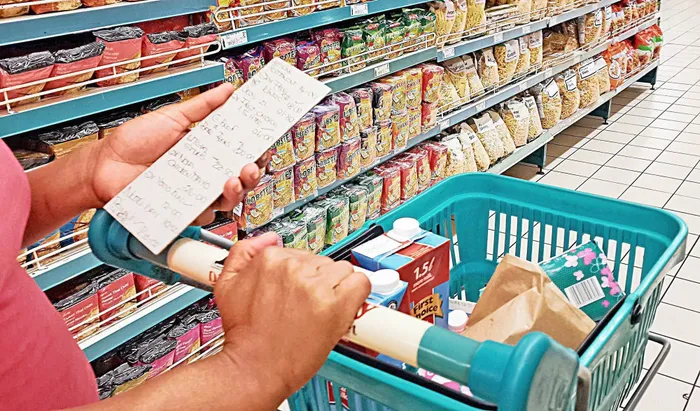Black Friday shifts from luxury to necessity for desperate South Africans

As Black Friday approaches, South Africans face a difficult financial landscape where grocery deals become a lifeline. Explore how economic pressures are reshaping the traditional shopping event into a battle for survival and find out how the public is navigating these challenging times.
Image: File photo
As the world gears up for the annual Black Friday shopping frenzy on 28 November, a startling new survey conducted by Debt Rescue revealed a troubling shift in the motivations of South African consumers.
Once primarily associated with splurging on luxuries, this year's shopping event has transformed into a desperate struggle for survival among many households.
The survey findings indicated that a staggering 64.3% of South Africans are counting on substantial Black Friday deals on groceries and essential food items, sought to ease the burden of an exceptionally harsh financial year.
Economically, the nation has seen relentless price increases and persistently high interest rates weigh heavily on its citizens, leading to an evident strain that is encapsulated in the responses from over 1,000 participants surveyed.
Neil Roets, the CEO of Debt Rescue, noted that the sentiment surrounding Black Friday has dramatically altered.
"More than half of our participants cannot afford to shop this year, and many admitted that the marketing around the event has become a source of financial stress and potential debt, rather than excitement," he said.
The data shows 50.38% of respondents believe the retail event encourages unnecessary debt accumulation, while 25.3% reported feeling pressured to make purchases beyond their means.
This year, Black Friday is less about acquiring luxury items and more about securing necessities.
Roets emphasised that consumers are aiming to relieve their financial stress by capitalising on discounts for essential household items.
Over half of those polled (58.3%) plan to focus their shopping on groceries and vital supplies, with 19.9% targeting lower-cost clothing and school uniforms. It's a shift that reflects a broader trend in consumer behaviour, a prioritisation of essential purchases over indulgent spending.
Furthermore, the results revealed a crucial takeaway about consumer spending habits during this retail extravaganza.
A significant 60.9% of participants are keen to avoid incurring any new debt, opting to use cash or debit cards for their purchases.
A mere 3.5% indicated they would rely on credit, showcasing a prudent approach borne out of fear of worsening their financial situations.
The ramifications of ongoing financial stress are painfully clear.
Raised alarms regarding the emotional well-being of many South Africans have surfaced, with findings from the latest Cumulate Financial Resilience Index exposing that 29% of individuals feel that money pressures significantly harm their mental health.
"Worrying about meeting debt repayments or putting food on the table deeply affects emotional health and overall well-being," Roets said.
As millions of South Africans brace for yet another month of financial ambiguity, the discourse surrounding Black Friday takes on new urgency. Gary Kayle, CEO of Worth, a financial education brand, described this upheaval as a "quiet crisis" that affects a multitude of citizens across income brackets.
For individuals struggling with debt, Roets advises seeking help from registered debt counsellors, who can provide the guidance needed in navigating these challenging economic times.
His closing sentiment reflects the gravity of the situation: "With many households on the brink of financial ruin, the sad truth is that South Africans may have to resort to credit facilities just to experience a semblance of festive cheer."
A sobering reminder that this year’s Black Friday is no longer about extravagant luxuries, it is an essential step toward survival.
BUSINESS REPORT